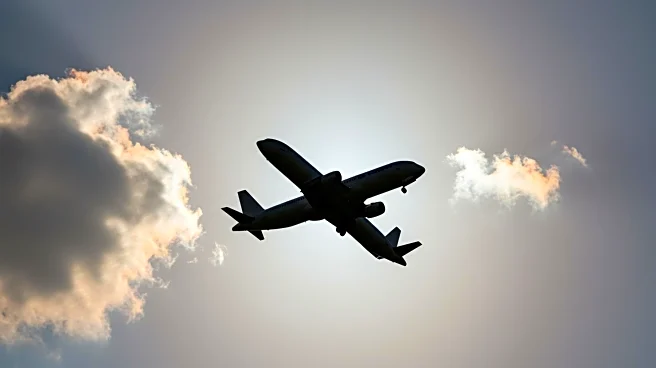What's Happening?
Air Canada is experiencing significant disruptions as its flight attendants continue to strike, defying a government order to return to work. The strike, initiated by the Canadian Union of Public Employees (CUPE), involves 10,000 flight attendants and has left over 100,000 travelers stranded during the peak summer travel season. The Canadian government intervened, ordering the flight attendants back to work, but the union has rejected this directive, calling it unconstitutional. The strike stems from ongoing contract negotiations, with the union demanding better compensation for unpaid labor and higher wages. Air Canada had proposed a 38% increase in total compensation over four years, but the union argues this does not adequately address inflation and other concerns.
Why It's Important?
The strike has significant implications for Air Canada, its passengers, and the broader Canadian economy. With over 130,000 customers affected daily, the disruption highlights the critical role of labor relations in the airline industry. The government's intervention underscores the economic stakes involved, particularly given recent U.S. tariff increases impacting Canada. The situation raises questions about workers' rights and the balance between corporate interests and fair labor practices. The strike could lead to financial losses for Air Canada and inconvenience for travelers, while also setting a precedent for future labor disputes in the industry.
What's Next?
Air Canada plans to resume flights on Monday evening, but the union's continued defiance suggests further negotiations are necessary. The Canadian government may face pressure to reconsider its approach to labor disputes, especially if the strike persists. Stakeholders, including passengers and industry groups, will be closely monitoring developments, as prolonged disruptions could lead to increased calls for government intervention or alternative travel arrangements. The union's stance indicates a willingness to continue striking until a satisfactory agreement is reached, potentially prolonging the impact on travelers and the airline.
Beyond the Headlines
The strike raises broader questions about labor rights and the use of government power in industrial disputes. The Canadian government's frequent use of binding arbitration in recent labor conflicts has sparked debate about its impact on workers' rights. The situation also highlights gender dynamics, as a significant portion of Air Canada's flight attendants are women, raising concerns about equitable treatment compared to male-dominated roles like pilots. The outcome of this strike could influence future labor negotiations and government policies regarding industrial peace.









